AITAH for getting a medical procedure for my non-verbal brother without his consent?
The user, a 34-year-old male (OP), is the primary caregiver for his younger brother, Noah (22M), who has severe intellectual and non-verbal disabilities similar to those of a toddler. A major recurring challenge has been maintaining Noah's dental hygiene, as attempts to brush his teeth trigger severe meltdowns due to his sensory sensitivities.
After consulting with medical professionals, the OP decided to place Noah under general anesthesia to address existing severe dental issues and apply preventative measures like sealants and tooth removal. Although the procedure significantly improved Noah's comfort and quality of life, the OP's older sister, Emma (38F), reacted with intense anger, accusing the OP of violating Noah's bodily autonomy. Now, facing accusations from his sister and other family members that he was being controlling, the OP doubts if he made the right ethical decision.
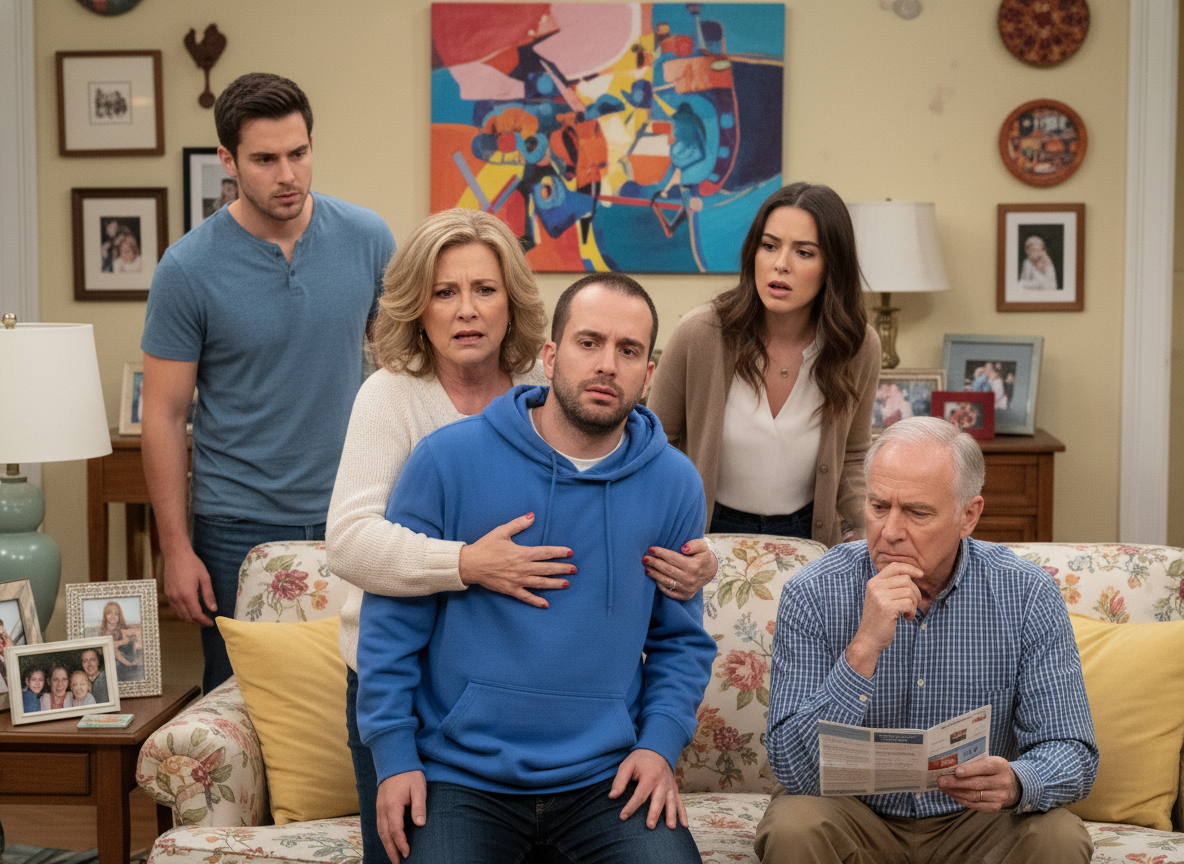
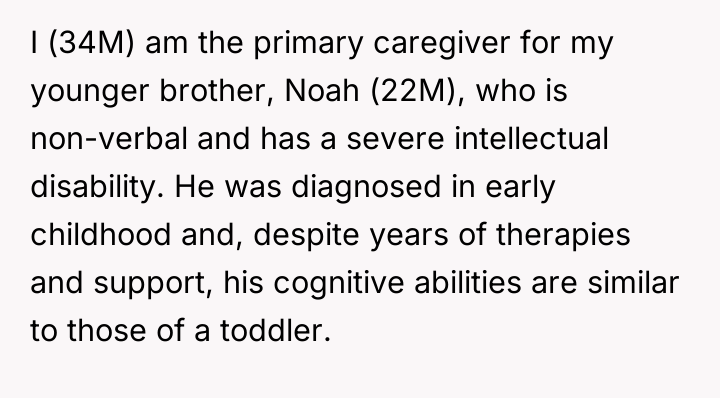
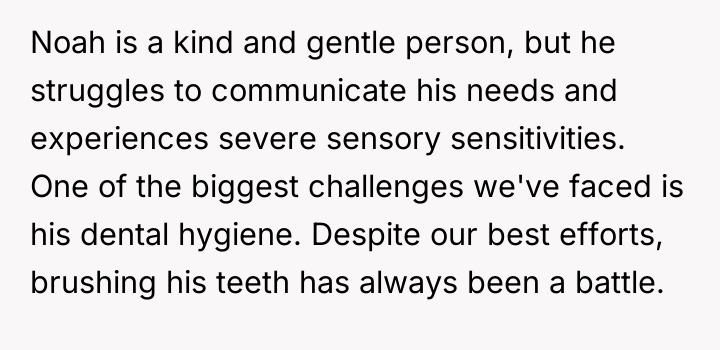
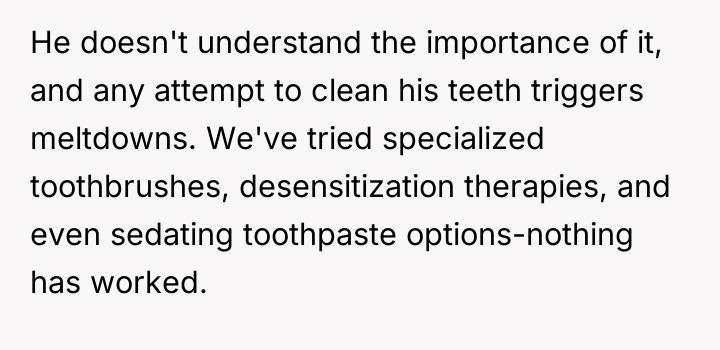
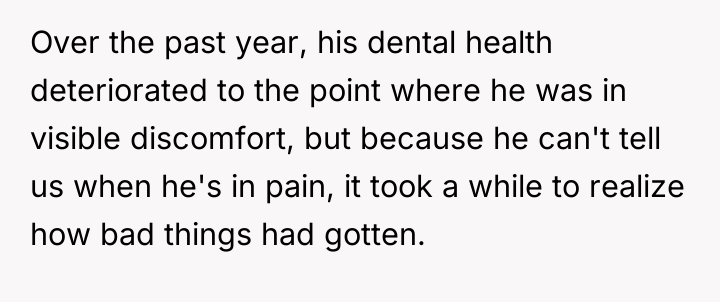
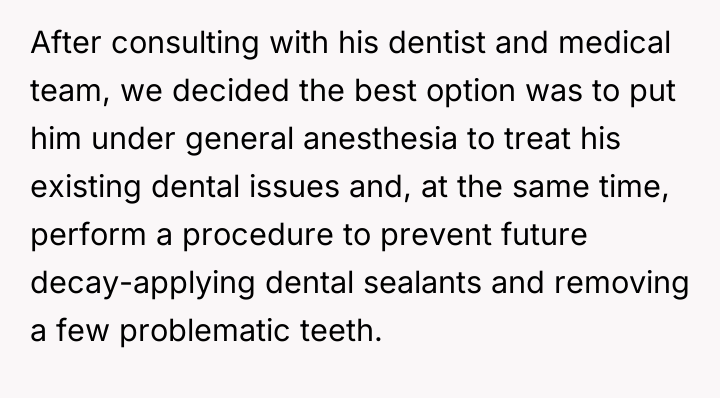
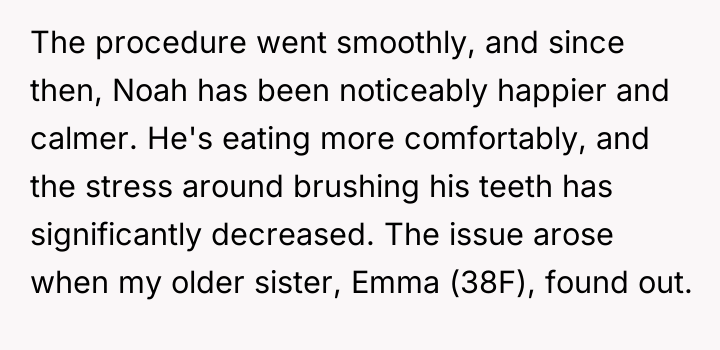
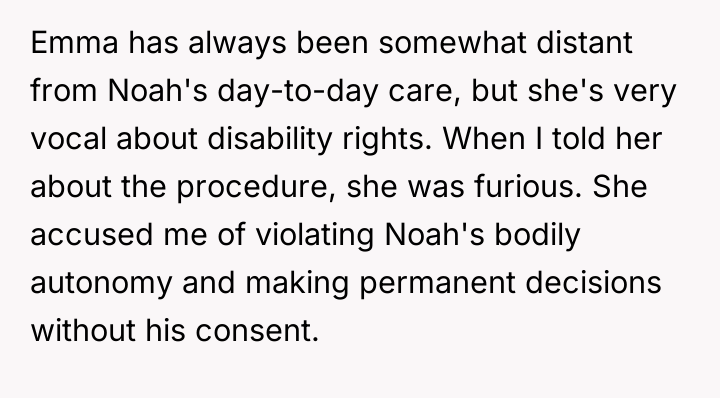
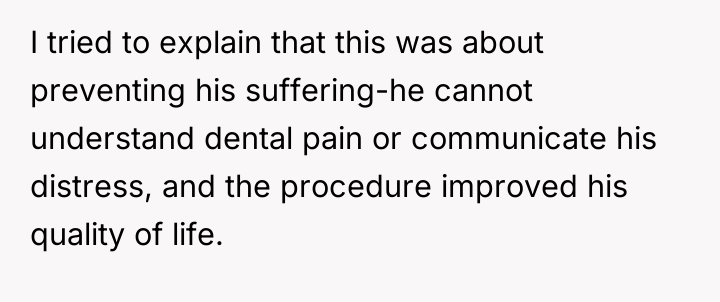
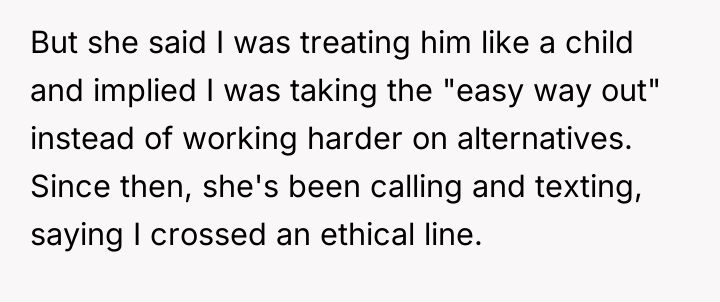
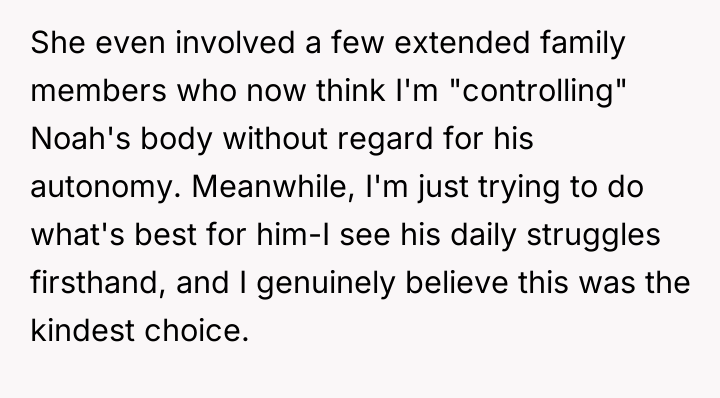
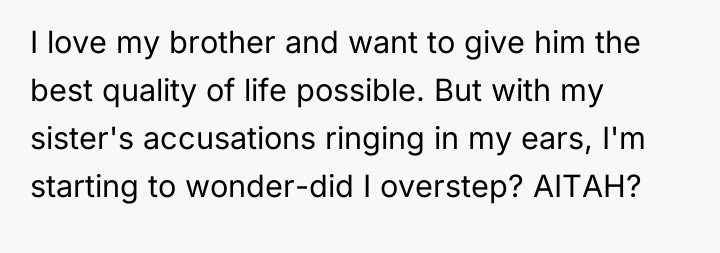
Subscribe to Our Newsletter
As renowned bioethicist Arthur L. Caplan explains, "When people are profoundly disabled and cannot make decisions, the question becomes who is best situated to make decisions for them, and what is the standard they should be using?" This situation directly confronts the tension between substituted judgment and best interest standards in decision-making for incapacitated adults.
The OP, as the primary caregiver, possesses the most intimate knowledge of Noah's daily suffering and responsiveness to care, aligning him best to make 'best interest' decisions. Noah's inability to communicate pain or understand the long-term necessity of dental care shifts the ethical focus from respecting future autonomy (which is not viable) to alleviating current, tangible distress. Emma's concern stems from a valid disability rights framework, but this framework often struggles when applied to individuals with toddler-level cognition where quality of life interventions must supersede abstract rights.
The OP's action, supported by medical consultation, appears appropriate as a necessary, compassionate response to prevent ongoing suffering. Moving forward, the OP should continue to document all medical rationale thoroughly and engage with Emma not by defending the action, but by sharing the objective, measurable improvements in Noah's daily functioning post-procedure to re-establish trust and shared understanding of the 'best interest' standard.
THE COMMENTS SECTION WENT WILD – REDDIT HAD *A LOT* TO SAY ABOUT THIS ONE.:
When users weighed in, they held nothing back. It’s a raw, honest look at what people really think.


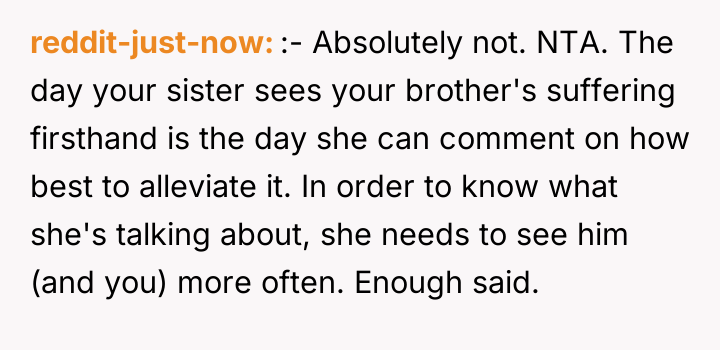


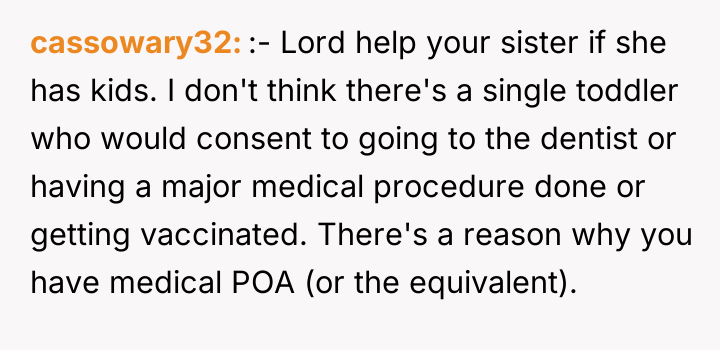

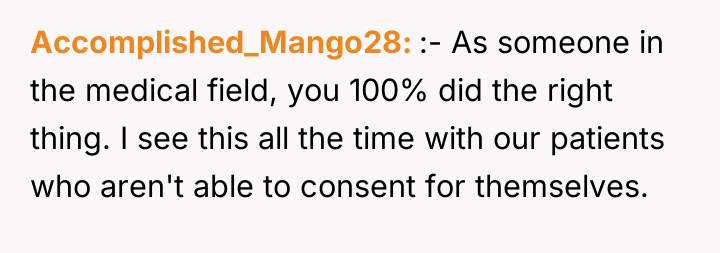
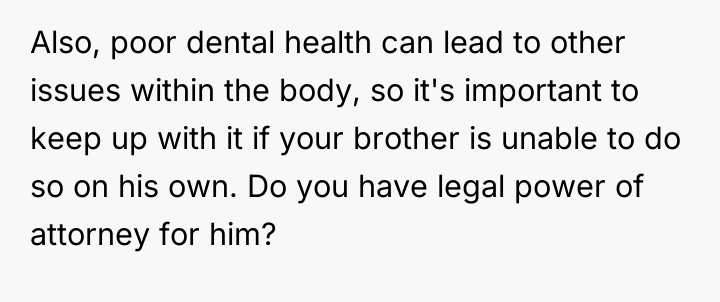
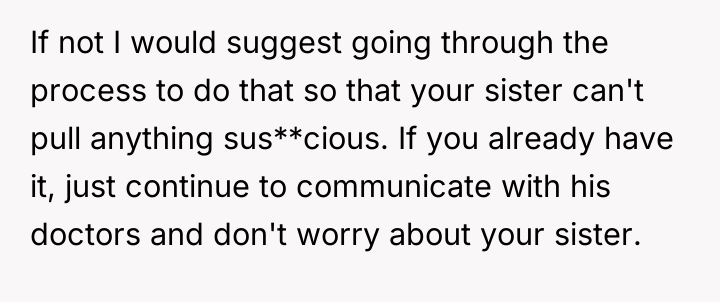
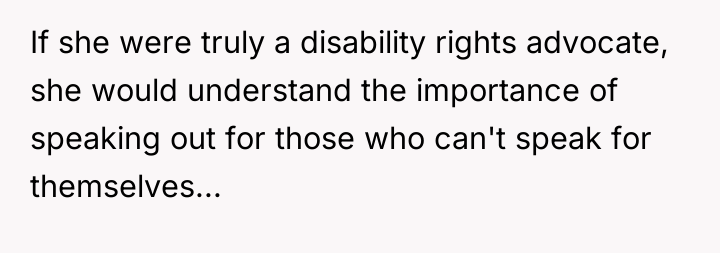
The core conflict centers on the OP's responsibility as a caregiver versus the abstract concept of autonomy for an individual who cannot express consent or understand future consequences. The OP acted based on observable, immediate relief of suffering, while his sister prioritizes a principle of bodily integrity, viewing the OP's decision as overreaching authority.
Considering the brother's profound cognitive limitations and documented suffering, was the OP justified in making a necessary, medically advised intervention to improve daily life, or did he wrongly bypass established ethical standards regarding consent for permanent physical procedures?